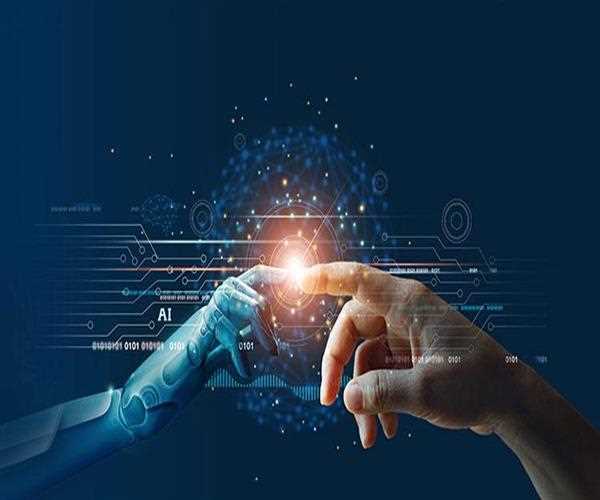
31-Aug-2022
Best usages of artificial intelligence in everyday life
As the field of artificial intelligence (AI) advances, we can see the first real use cases in almost everyday life. Some of these examples are Smart speakers, Self-driving cars, Fraud detection, Personalization, and more. However, it is important to note that there are other less obvious applications as well.
Smart speakers
- AI is already affecting our everyday lives in many different ways. Using a digital assistant to find a restaurant or a car rental is just one example. Digital assistants can also help you with your work by scanning your schedule and searching the web for information. These technologies are a great way to save time and energy, and AI can also improve how you do simple tasks such as grading papers.
- For example, voice-controlled AI assistants are becoming a common feature of smartphones. They can recognize a person's voice and respond accordingly. This type of technology allows AI to provide personalized recommendations for tasks and make the user's life easier. Emotech developed Olly, a voice-controlled AI assistant. It uses machine learning algorithms to understand the way a person speaks. It also recognizes facial expressions and verbal patterns. It can also make suggestions based on its learning.
- AI can also be used to provide personalized recommendations to online shoppers. It can help smartphones improve their customer experience by answering questions, recommending products based on preferences, and organizing daily routines. Technology has also helped the e-commerce industry grow. Its algorithms can help businesses improve their customer experience by delivering a personalized experience, building better relationships, and boosting sales.
Self-driving cars
- One of the major concerns about autonomous vehicles is safety. But there are a few ways to mitigate the risks. The first is by reducing the number of vehicles on the road. For example, autonomous street sweepers are currently being tested in China's Hunan province. Another solution is to integrate AI software into these vehicles. This can help the vehicles recognize pedestrians and objects from a distance.
- Another way to reduce risks is to build trust. An example would be if an autonomous vehicle could understand the signs that a human being is in distress. In this case, the vehicle would automatically send a distress message to emergency services, which could help locate and contact the patient. They would be able to drop the patient at an emergency drop-off zone and pick them up without endangering other drivers.
- An autonomous car will be able to recognize pedestrians and other vehicles. It will also be able to recognize the location of objects and warn the driver if something is in its way. However, pedestrians may not be easily identifiable, as they may be carrying groceries or other items. In such cases, the car will be able to recognize the object by using various object detection functions.
Fraud detection
- AI can be used in many ways. It can help people manage their homes, take care of their elderly parents or help with everyday tasks. Netflix, Spotify, and YouTube use AI to learn user preferences. For example, Netflix learns how you listen to music and then uses this information to make personalized recommendations.
- AI can also be used to monitor security camera feeds and analyze each person's features. This way, it can prevent crime and suspicious behaviors from occurring. AI is also increasingly used in travel and navigation. We use navigation maps almost every day, so AI is becoming an integral part of these experiences. Many ride-sharing services and navigation providers use AI in their algorithms. AI can also be used in education. Teachers have to spend a lot of time reviewing papers, so it will help them automate this task.
- Another area where AI is making a major impact is health. It is a driving force behind machine-learning-based health systems and can make our lives easier. Devices such as the Nest Thermostat and Philips Hue light bulbs make life easier.
Personalization
- The retail industry is a great example of how personalization has improved the experience of shopping. While online sales have dominated traditional retail, AI-powered personalization has improved the experience at brick-and-mortar stores. Companies like Amazon have developed algorithms to analyze customer behaviors and patterns and recommend products that will be popular with their customers. They're even using beacon technology to help shoppers shop more efficiently and find better deals.
- Hyper personalization, or personalized experiences, is a type of AI-based personalization. AI-based systems use big data, user location, browsing history, and purchasing history to provide customized experiences to customers. It also helps organizations meet organizational goals by responding to changing organizational requirements. By making products, content, and experiences more relevant and interesting to customers, this technology improves the user experience.
- AI-powered chatbots can answer questions, schedule appointments, and recommend useful content. These systems are now commonplace on websites. Chatbots can also be used to automate tasks, such as booking a hair appointment. Apple's Siri, Google Now, Amazon's Alexa, and Microsoft's Cortana are examples of chatbots. These systems are based on algorithms that train machines to answer complex questions.

SEO and Content Writer
I am Drishan vig. I used to write blogs, articles, and stories in a way that entices the audience. I assure you that consistency, style, and tone must be met while writing the content. Working with the clients like bfc, varthana, ITC hotels, indusind, mumpa, mollydolly etc. has made me realized that writing content is not enough but doing seo is the first thing for it.
Comments
Join Our Newsletter
Subscribe to our newsletter to receive emails about new views posts, releases and updates.
Copyright 2010 - 2026 MindStick Software Pvt. Ltd. All Rights Reserved Privacy Policy | Terms & Conditions | Cookie Policy